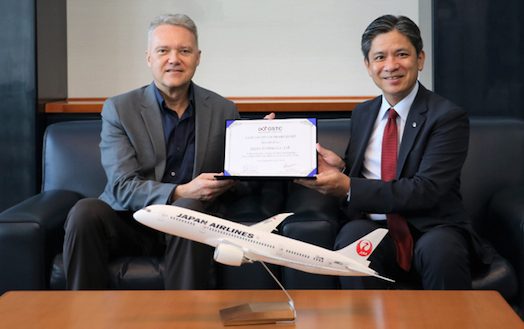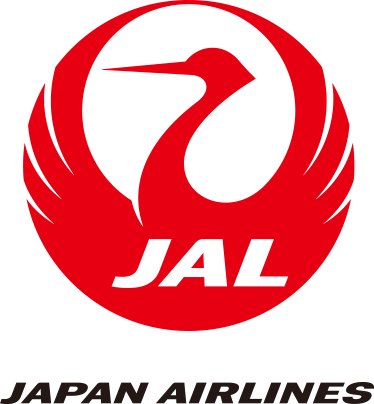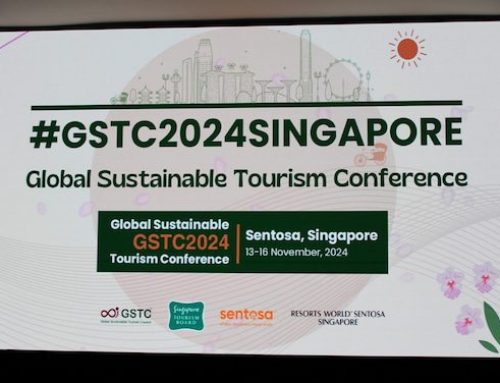Japan Airlines Joins GSTC
Japan Airlines (JAL) was established in 1951 as the first wholly Japanese commercial airline post-war and celebrated its 70th anniversary in 2021. It is a member of the oneworld Alliance and operates a number of businesses centered on international air transportation.
Sustainability Commitment
Japan Airlines is striving for net zero CO2 emissions by 2050. Amid the pandemic, it steadily upgraded its fleet to low-carbon aircraft such as the Airbus A350. They state that half of the carbon reductions by 2050 will be achieved through upgrades to fuel-efficient aircraft, but it will need to use Sustainable Aviation Fuel (SAF) to reduce the other half of emissions (Japan Airlines 2022 Report).
Japan Airlines is also reducing single-use plastic by switching to certified paper products and in-flight meal containers.
In their Sustainable Challenge Flights to New York (September 14-20, 2023) which is the second phase of Japan Airlines sustainable challenge flights following the Tokyo (Haneda) to Okinawa (Naha) charter flight last November. Customers will enjoy local products from various regions of Japan through inflight meals and inflight shopping. In addition, they will be able to experience the various regions of Japan through conversations with cabin attendants wearing the “JAL Todofuken Badge” (badges to show connection with Japanese prefectures) worn on domestic flights.
Under JAL Vision 2030, they affirm they are working to create a ”safe and secure society” and “sustainable future” with ESG as the core of their management strategy. They have redefined growth as the “enhancement of corporate value”. To this end, Japan Airlines has established four priority areas: environment, people, communities, and governance, which are aligned with the SDGs; and classified them into 22 issues to work on per area: addressing climate change, effective use of limited resources, precaution of environmental pollution, noise reduction, promotion of inbound tourism, accessibility, diversity and Inclusion amongst others.
In August 2019, the “JAL Group Service Policy on Accessibility Improvement” was established in order to provide an accessible environment and a stress-free travel experience for all customers. Its Accessibility Plan is offered in alternative formats: print, large print, Braille, audio format, and electronic format to guarantee that information is available to everyone.
When selecting business partners, Japan Airlines assesses a broad range of factors, such as product and service quality, costs and delivery periods, the company’s reputation, ESG perspective, and sustainability initiatives. They also ensure fair and transparent procurement activities by offering numerous opportunities for domestic and international business partners to do business with the JAL Group.
Additionally, JAL’s Tour Product Department is planning to create a sustainable tourism tour and JAL’s Sales Department aspires to craft sustainable tour experiences in Amami Island in the Satsunan Islands. JAL has a stake in Okura Nikko Hotel Management Co., Ltd., a global hotel operating company that runs hotels around the world under the name of Okura Nikko Hotels. Okura Nikko Hotels manages “Okura Hotels & Resorts”, “Nikko Hotels International” and “Hotel JAL City” hotel groups, with a total of 53 properties across Japan and 28 properties in the rest of world, which they aim to operate sustainably.

JAL aims to promote sustainable tourism by increasing the number of inbound visitors to various parts of Japan through sustainable tourism products. Additionally, JAL is committed to supporting accommodation facilities and tourist attractions in obtaining certification. Furthermore, JAL plans to accelerate its ESG strategy by developing products that meet the GSTC Criteria and expanding its solution services. The overall goal is to create a sustainable society and future where everyone can enjoy repeated trips with both safety and peace of mind.
GSTC Welcomes Japan Airlines
“We welcome Japan Airlines’ as a member of the GSTC, their commitment to sustainability is reflected in their actions, with an ESG Strategy as its topmost company plan. JAL is not just a world-class airline but they own tour operators and have a stake in a hotel operator. Japan Airlines is flying towards a sustainable tomorrow and we’re delighted that GSTC is part of their journey,” says Randy Durband, CEO of GSTC.
About Japan Airlines
Japan Airlines (JAL), Japan’s first private aviation company, was established in 1951 and is a member of the oneworld® Alliance. The airline operates a fleet of 224 aircraft and is scheduled to begin renewing its international flagship aircraft starting 2023 Winter Schedule. Together with other JAL Group and partner airlines, JAL offers an extensive domestic and international network that serves 376 airports across 64 countries/regions. The airline has received numerous accolades for its exceptional service, including being recognized as a certified 5-Star Airline by Skytrax and awarded the prestigious “World Class” Airline title by APEX, the Airline Passenger Experience Association. JAL takes great pride in its on-time performance and is regarded as one of the most punctual airlines globally. The airline is dedicated to ensuring the highest standards of flight safety and overall service quality, striving to be the most preferred airline by customers worldwide. The JAL Group recognizes that action to address climate change is a particularly important issue for the sustainability of society, and in June 2020, the group announced its commitment to achieve net zero carbon emission by 2050.
For details and to learn more, visit JAL’s official website at https://www.jal.com/en/.
About the GSTC
The Global Sustainable Tourism Council® (GSTC®) establishes and manages global sustainable standards, known as the GSTC Criteria. There are two sets: Destination Criteria for public policy-makers and destination managers, and Industry Criteria for hotels and tour operators. These are the guiding principles and minimum requirements that any tourism business or destination should aspire to reach in order to protect and sustain the world’s natural and cultural resources while ensuring tourism meets its potential as a tool for conservation and poverty alleviation.
The GSTC Criteria form the foundation for GSTC’s assurance role for Certification Bodies that certify hotels/accommodations, tour operators, and destinations as having sustainable policies and practices in place. GSTC does not directly certify any products or services, but provides accreditation to those that do. The GSTC is an independent and neutral USA-registered 501(c)3 non-profit organization that represents a diverse and global membership, including national and provincial governments, leading travel companies, hotels, tour operators, NGOs, individuals and communities – all striving to achieve best practices in sustainable tourism.
Information for media and the press: www.gstcouncil.org/about/for-the-press/





